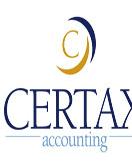Tax credits is income given to people that are on lower income than everyone else. There are 2 different types of tax credits. The first one is working tax credit and the other one is child tax benefit. These tax credits are put in place to help families that are on a lower income than others and to lift them out of the welfare dependency.
Working Tax Credit
The Working Tax Credit is designed to help the people that are working but are on lower income and that just need a helping hand to put the money towards rent or food, just to get them through the month. You are able to get the Working Tax Credit if you are self-employed or employed. Depending on your circumstances such as paying for child care or having a disability, you can get the basic amount plus extra. If you have a universal credit then you can’t claim for Working Tax Credit.
You would be able to claim if you are 25 or over and working a minimum number of hours per week. Also, if you are ages between 16 and 24 and have a disability or have a child.
This is a table to show you how many hours you would need to work if you are claiming for Working Tax Credits:
Your circumstance Minimum number of working hours a week
Couple with 1 or more children At least 24 hours between you, with one at least working 16 hours
Single with 1 or more children 16
Disabled 16
Ages 60+ 16
Aged 25 to 59 30
There are limits for Working Tax Credits that lets you know if you can or can’t claim. In your household, if the income between everyone is £6,420 or below then you will get the maximum amount that you can get for each Working Tax Credit category that you are entitle to. This is called the income threshold (£6,420) and if you start to earn anymore above this threshold then the Working Tax Credits that your originally got will reduce.
This table will show you the income limits you can get for Working Tax Credits if you are over 25, don’t have a disability and don’t have any children:
Number of Children Annual household income limit for 2016/17
None – couple Around £18,000
None – single person Around £13,000
If you are eligible to get the basic amount for the Working Tax Credits which is £1,960 a year, this is the basic element. You can get extra amounts on top of the basic element depending on your circumstances. It depends on:
- Whether you have children
- Your income
- Whether you pay for child care
- Whether you have a disability
- How many hours you work
The rates for 2017/18 tax year
Element Yearly amount
If you are paying for registered or approved childcare (the ‘childcare element’) Up to 70% of your childcare costs
If you are severely disable (the ‘severe disability element’) Up to £1,290
If you work and are disable (the ‘disability element’) Up to £3,000
If you work up to at least 30 hours a week (the ’30 hours element’) Up to £810
For a couple applying together or a single parent (the ‘couple or long parent element) Up to £2,010
Child Tax Credit
The Child Tax Credit is to help with the cost of raising a child if you are on low income or unemployed. You might be able to claim for it if you are over 16 and responsible for a child who is either under 20 and in full time education or training or under 16.
Rates for 2017/18 tax year are
Element Yearly amount
For each severely disable child (the ‘severely disabled child element’) Up to £1,290 (in addition to the child and disabled child element)
For each disable child (the ‘disabled child element) Up to £3,175 (in addition to the child element)
For each child (the ‘child element’) Up to £2,780
These amounts you get also depend on things like:
- Whether your child has a disability
- How many children you have living with you
- Your income
The Tax Credit Office will take into account your circumstances when apply for the Child Tax Credits. The table below with show you a rough idea for the upper annual household income limits for getting Child Tax Credit, if your income is below or around these amounts then you may be entitled to it.
If you have child care costs
Number of children Annual household income limit for 2017/18
1 £40,000
2 £55,000
3 £65,000
If you don’t have childcare costs
Number of children Annual household income limit for 2017/18
1 £25,000
2 £35,000
3 £40,000

